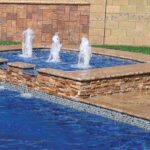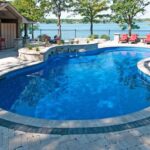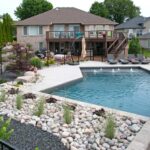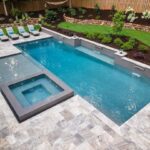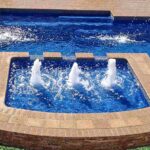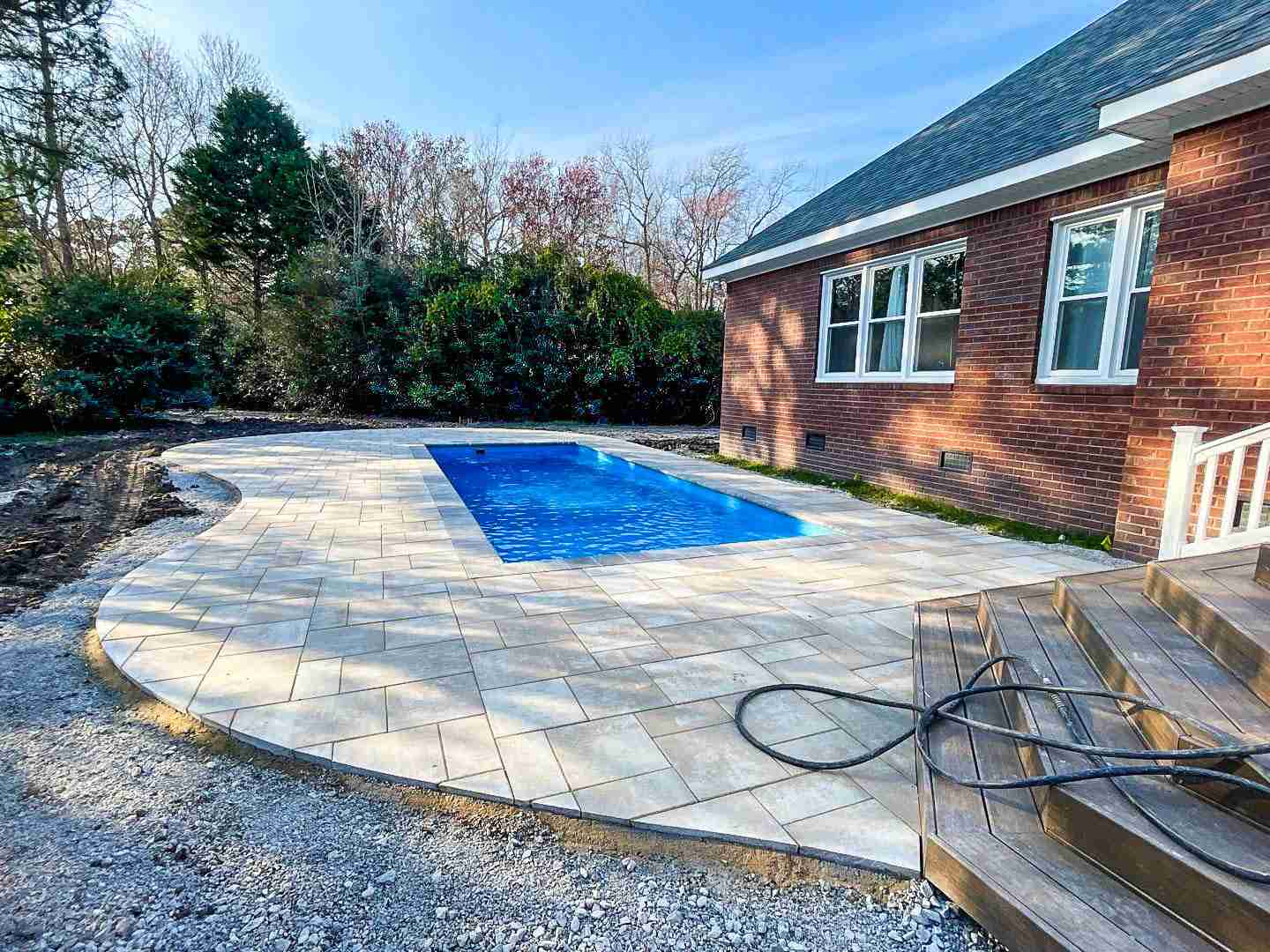
Choosing your Ideal Swimming Pool Size in Virginia
Considering the different pool sizes, shapes, and depth options available, deciding to install a swimming pool in your backyard is exhilarating and equally challenging. To ensure that you’re making the most out of your investment, choosing a size that accommodates your needs, aesthetic preferences, budget, and the available space in your yard is crucial. In this comprehensive guide, we detail these factors, providing you with the insights you need to make the best decision about your home swimming pool size.
Defining Standard Pool Sizes
There’s a wide range of sizes for residential swimming pools, but several standard dimensions have been established within the industry. Here’s a brief overview:
Inground Pools: These pools are popular due to their durability and aesthetic appeal. They typically range from 10 to 20 feet in width and 20 to 40 feet in length, with a depth between 6 to 8 feet. Some common sizes include 12′ x 24′, 14′ x 28′, 15′ x 30′, 16′ x 32′, 18′ x 36′, 20′ x 40′, and 22′ x 44′. These pools tend to follow a 2:1 ratio of length to width.
Above-Ground Pools: For those with limited space or budget, above-ground pools can be an excellent option. Their sizes vary greatly, with diameters ranging from as small as 8 feet to as large as 41 feet and heights typically around 3 – 4.5 feet.
Non-Traditional Shapes: Kidney-shaped and oval pools are popular alternatives for those seeking a different aesthetic. They offer similar dimensions to rectangular pools but can provide a unique design element to your backyard.
Space Requirements: Pool and Yard Ratio. The size of your backyard plays a pivotal role in determining the feasible size of your pool. It’s recommended that your pool, including the pool deck and immediate surrounding area, should occupy around 25% to 35% of your backyard. This balance helps to ensure you have adequate space for other features like landscaping, outdoor seating, play areas, and walkways.
For instance, if you plan to install a pool size of 16′ x 32′, you’d need a yard area of at least 3,500 sqft. This would mean your pool and surrounding area would occupy approximately 45% of your yard. If you want your pool area to take up only 25% of your yard, your yard should ideally be 6,000 sqft or larger.
The Purpose of Your Pool
The purpose of your pool and the anticipated users significantly influence the choice of pool size and depth. Are you installing the pool for exercise, relaxation, family fun, or entertainment? The answer will guide you in the right direction.
Swimming Enthusiasts: If you’re a keen swimmer who plans to use the pool for exercise, you may prefer a longer and deeper pool, such as a lap pool. Standard lap pools are usually around 50 feet long but can be customized based on available space and the user’s preference.
Children and Family: A smaller, shallower pool may be sufficient if the pool is intended primarily for children or casual relaxation. Pools catering to kids and adults should ideally have a maximum depth of five feet and a minimum depth of three feet to ensure safety.
Social Settings: If you foresee hosting many pool parties or have a large family, a larger pool could accommodate everyone comfortably. In this case, consider wider and longer pools, possibly with varying depths.
Pool Depths: The depth of the pool is another significant factor to consider. Residential pools usually have depths ranging from 3 to 5 feet for general swimming. However, if you plan to include a diving board or slide, the pool must be deeper – around 8 to 10 feet – at one end to ensure safety.
Legal and Budget Considerations
It’s essential to know local codes and regulations before installing your pool. Regulations may limit your pool’s size, placement, and fencing requirements. Always consult your local municipality or hire a professional contractor who understands these requirements.
Budget is a crucial determinant of your pool size. The more significant the pool, the higher the installation and maintenance costs. Therefore, when choosing your pool size, it’s essential to factor in long-term expenses like cleaning, water treatment, repairs, and heating.
Legal and Budget Considerations
It’s essential to know local codes and regulations before installing your pool. Regulations may limit your pool’s size, placement, and fencing requirements. Always consult your local municipality or hire a professional contractor who understands these requirements.
Budget is a crucial determinant of your pool size. The more significant the pool, the higher the installation and maintenance costs. Therefore, when choosing your pool size, it’s essential to factor in long-term expenses like cleaning, water treatment, repairs, and heating.
Conclusion
Selecting the perfect size for your residential swimming pool is a multifaceted decision beyond just measuring your backyard. It calls for a comprehensive understanding of your requirements, the intended use of the pool, the available yard space, your budget, and local regulations compliance.
This knowledge will go a long way in ensuring you make a decision that suits you and your family’s lifestyle and that your new pool will indeed be the oasis of relaxation and entertainment you envision. With careful planning and patience, you can make your dream pool a reality, making your backyard the ultimate summer destination for years.
At PoolForce, we understand that each home, family, and lifestyle is unique, as are your pool needs. Our experienced professionals are ready to help you navigate these decisions. From understanding your vision to designing the perfect pool and from construction to the final reveal, we ensure the process is smooth and exciting. Reach out to us today for an estimation or consultation. Allow us to guide you through the process and create the perfect oasis that your backyard deserves. We can’t wait to bring your dream pool to life!


